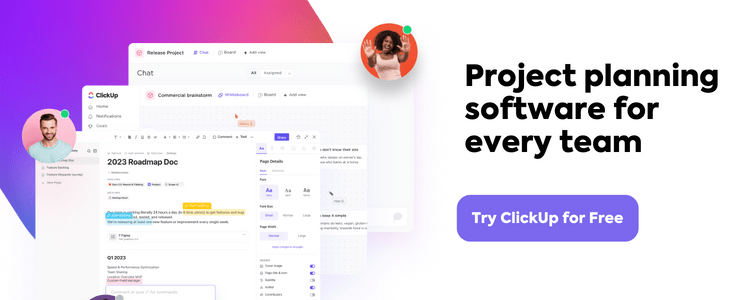

This is an exciting time: A Project Management Institute (PMI) study reported that by the year 2030, the global economy will require an additional 25 million project professionals to meet its demands.
In the current job market, project managers question the importance of project management certifications and how they can enhance their marketability to prospective employers. These credentials provide tangible evidence of project management knowledge, expertise, and commitment to professional development. ?
We’ve shortlisted the top 11 certifications with different subjects of interest and mapped out productive tips to start your certification journey. But before we delve deeper, let’s begin by understanding the certification fundamentals for project managers.
- What is a Project Management Certification?
- 11 Best Project Management Certifications for 2024
- 1. Project Management Professional (PMP) Certification
- 2. Certified Associate in Project Management (CAPM) Certification
- 3. Program Management Professional (PgMP) Certification
- 4. PMI Agile Certified Practitioner (PMI-ACP) Certification
- 5. Portfolio Management Professional (PfMP) Certification
- 6. Certified ScrumMaster (CSM) Certification
- 7. PMI Risk Management Professional (PMI-RMP) Certification
- 8. IT Infrastructure Library (ITIL) Foundation Certification
- 9. Scaled Agile Framework (SAFe) Certification
- 10. Certified Project Management Professional (CPMP) Certification
- 11. Google Project Management Professional Certificate
- Is a Project Management Certification Worth It?
- Your Next Project: Create a Study Schedule for Your Certification Exam in ClickUp
What is a Project Management Certification?
A project management certification is a professional credential that validates an individual’s knowledge, skills, and expertise in the field of project management. It signifies that the project manager has met specific requirements, such as education, experience, and examination, set by accredited bodies or organizations.
Certifications are designed to ensure that project managers possess a comprehensive understanding of different project management methodologies, principles, best practices, and techniques.
These certifications cover various aspects of project management to be successful: Project planning, execution, monitoring, risk management, communication, stakeholder engagement, and leadership.
But not all project management certifications are built for every industry and project manager role. Let’s get a closer look at some of the top certifications available today! ?
11 Best Project Management Certifications
1. Project Management Professional (PMP) Certification
Subject of interest: Project management leadership
Offered by: Project Management Institute (PMI)
Exam fee: Non-members: $575, PMI Members: $405
The Project Management Professional (PMP) Certification recognizes proficiency in the project management standard. The certification exam evaluates candidates’ knowledge in project execution, integration, scope, time, cost, quality management, communication, procurement, and stakeholder management. It assesses their ability to apply project management methodologies and techniques in real-world scenarios.
To be eligible for the PMP certification, candidates need a high school diploma or equivalent with five years of experience leading projects within the past eight years.
Alternatively, candidates with a four-year degree require a minimum of three years of experience leading projects within the past eight years.
To maintain the validity and currency of your certification, you must earn 60 Professional Development Units (PDUs) within a three–year cycle through active learning and professional development. These PDUs showcase your commitment to growth and expertise in the field!
2. Certified Associate in Project Management (CAPM) Certification
Subject of interest: Entry-level project leadership
Offered by: Project Management Institute (PMI)
Exam fee: Non-members: $300, PMI Members: $225
The Certified Associate in Project Management (CAPM) Certification is a professional credential that demonstrates the project management knowledge and skills you possess. The exam covers areas such as developing the project scope, gathering requirements, establishing a budget, planning activities, monitoring progress, and more.
You can attend training courses and seminars, which will give you an in-depth understanding of the concepts on the exam. Additionally, practice tests are available to help you gauge your readiness for the exam.
This entry-level certification unlocks opportunities for project management roles like project coordinator and junior project manager. To take the exam, a candidate must have a secondary degree, such as a high school diploma, and at least 23 contact hours of project management education.
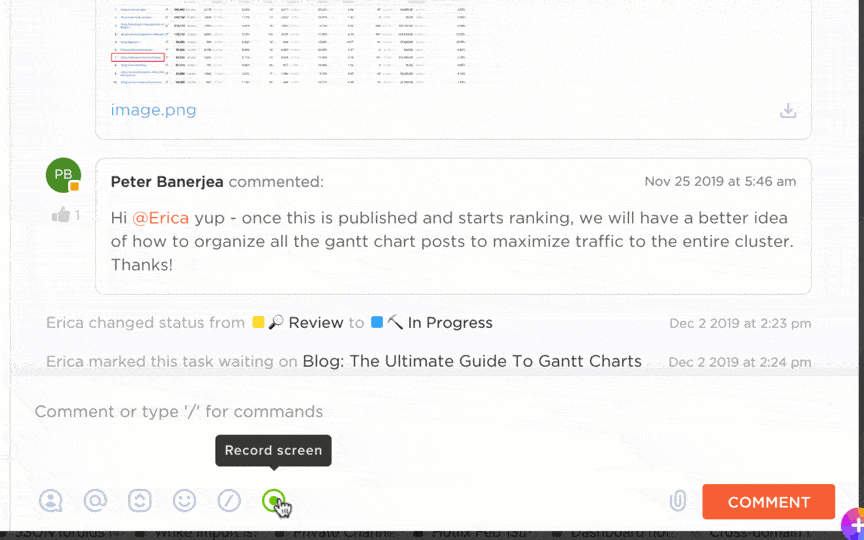
3. Program Management Professional (PgMP) Certification
Subject of interest: Program management
Offered by: Project Management Institute (PMI)
Exam fee: Non-members: $1,000, PMI Members: $800
The Program Management Professional (PgMP) Certification acknowledges excellence and mastery in program management. It signifies the highest level of expertise in leading and overseeing complex programs. A program is a collection of multiple projects linked together and managed as a whole to achieve a common objective, like an organizational change, for example.
The PgMP certification exam assesses candidates across domains like program strategy alignment, governance, lifecycle management, benefits management, stakeholder management, and risk management. It evaluates their ability to apply program management principles to real-world scenarios. As a result, program managers are able to orchestrate large-scale initiatives effectively.
The prerequisites for the PgMP are a secondary degree with four years of project management experience or a Project Management Professional (PMP) and four years of program management experience within the last 15 years.
Alternatively, candidates with a four-year degree and four years of project management experience or the Project Management Professional (PMP) and four years of program management experience within the last 15 years.
In order to keep your PgMP certification active, you are required to accumulate 60 professional development units (PDUs) within a three-year period.
4. PMI Agile Certified Practitioner (PMI-ACP) Certification
Subject of interest: Agile team management
Offered by: Project Management Institute (PMI)
Exam fee: Non-members: $495, PMI Members: $435
The PMI Agile Certified Practitioner (PMI-ACP) Certification recognizes expertise in Agile project management practices. It demonstrates a comprehensive understanding of Agile principles, frameworks (Scrum, Kanban, Lean, XP) and the ability to navigate complexity and drive continuous improvement.
To be eligible for the PMI Agile Certified Practitioner (PMI-ACP) certification, candidates must meet certain prerequisites. These prerequisites include a combination of education, professional experience, and training in agile practices.
In order to keep your PMI-ACP (Agile Certified Practitioner) certification active, you are required to earn 30 professional development units (PDUs) specifically related to Agile topics within a three-year period.
Learn effective team management tips to manage projects!

5. Portfolio Management Professional (PfMP) Certification
Subject of interest: Portfolio management
Offered by: Project Management Institute (PMI)
Exam fee: Non-members: $1,000; PMI members: $800
The Portfolio Management Professional (PfMP) Certification recognizes individuals with exceptional expertise in aligning projects and programs with organizational goals, optimizing resources, and maximizing business value.
Portfolio management involves a holistic approach to managing projects, programs, and initiatives to achieve strategic objectives. It showcases a person’s ability to govern portfolios, prioritize investments, balance risks and rewards, and optimize resource utilization.
The prerequisites for the PfMP include a secondary degree and seven years of portfolio management experience. Candidates must have eight years of professional business experience within the last 15 years.
In order to keep your PfMP (Portfolio Management Professional) certification active, you must earn 60 professional development units (PDUs) specifically related to portfolio management topics within a three-year period.
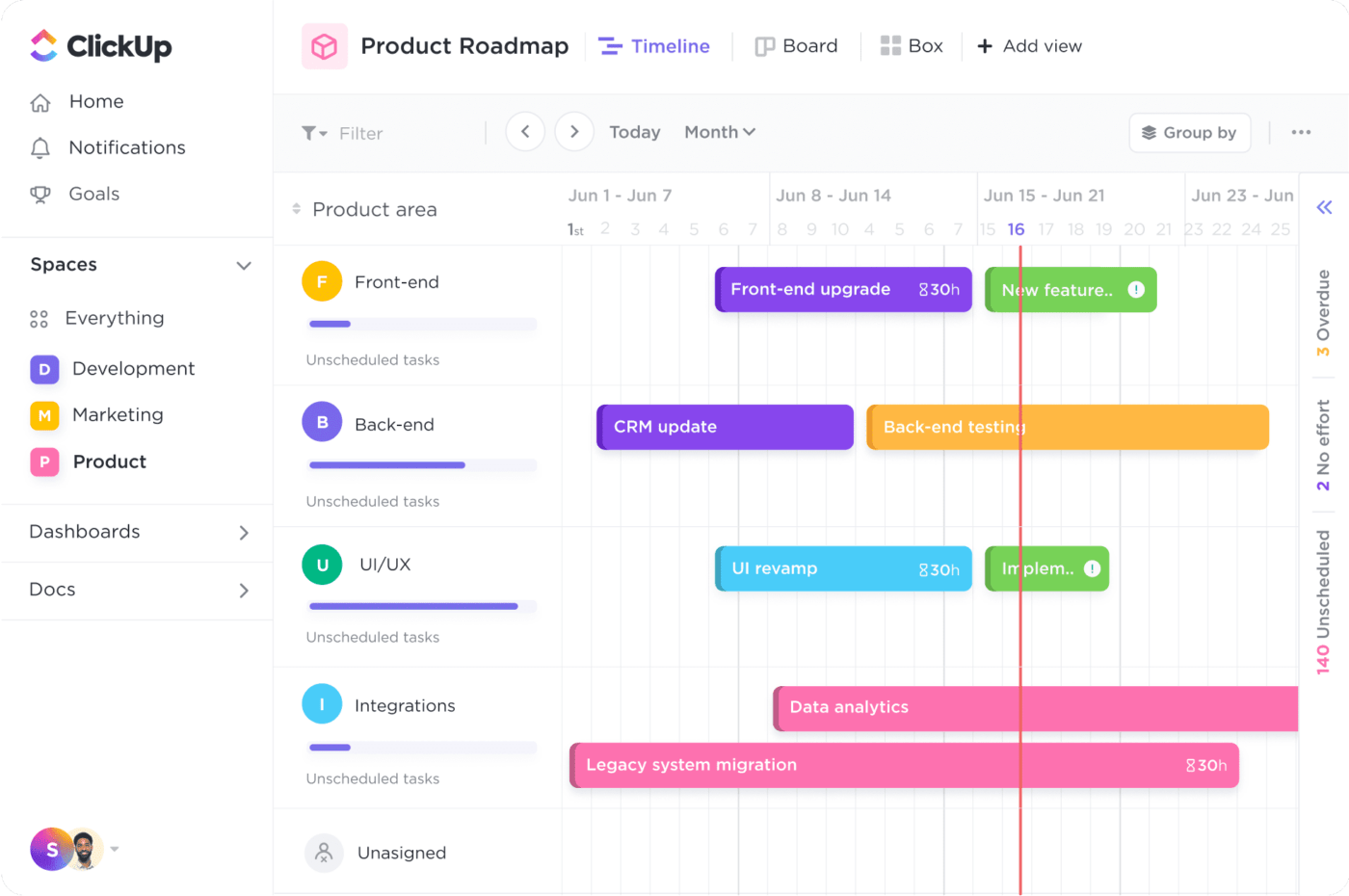
6. Certified ScrumMaster (CSM) Certification
Subject of interest: Agile ways of working with teams and industries
Offered by: Multiple trainers with different learning formats
Cost: Contact a Certified ScrumMaster (CSM) provider for pricing details
The Certified ScrumMaster (CSM) validates an individual’s expertise in Scrum, an Agile framework for effective project management. As a certified project manager, they’ll gain a comprehensive understanding of Scrum principles to guide cross-functional teams and organizations in implementing Scrum practices.
Participants acquire practical skills to apply Scrum in real-world scenarios. The training emphasizes collaboration, self-organization, and continuous improvement, empowering CSMs to foster high-performing, self-managing teams.
Obtaining CSM project management certifications opens doors to various career opportunities, including roles like Scrum Master, Agile coach, or Agile project manager.
7. PMI Risk Management Professional (PMI-RMP) Certification
Subject of interest: Risk management
Offered by: Project Management Institute (PMI)
Exam fee: Non-members: $670, PMI members: $520
The PMI Risk Management Professional (PMI-RMP) Certification recognizes individuals with advanced expertise in risk management. It validates skills in identifying, assessing, and mitigating risks.
PMI-RMP-certified professionals have a deep understanding of proactively identifying risks, analyzing the impact, and developing strategies to minimize adverse effects on project objectives. They enhance stakeholder confidence, foster a proactive risk culture, and facilitate better decision-making.
The certification program covers risk planning, identification, assessment, response planning, and monitoring. It equips professionals with a holistic approach to managing risks throughout the project lifecycle.
Similar to other project management certifications from PMI, the PMI-RMP has eligibility requirements. A candidate must have a secondary degree with three years of project risk management experience within the last five years and 40 hours of project risk management education.
Alternatively, candidates with a four-year degree with two years of project risk management experience within the last five years and 30 hours of project risk management education.
8. IT Infrastructure Library (ITIL) Foundation Certification
Subject of interest: IT service management
Offered by: Multiple providers with different learning formats
Cost: Contact an ITIL Foundation Certification provider for pricing details
The ITIL Foundation Certification offers comprehensive knowledge of ITIL concepts, principles, and processes. It aligns IT services with business objectives, optimizes service delivery, and drives continuous improvement.
ITIL Foundation certification benefits individuals by enhancing career growth and validating expertise. It enables effective communication and collaboration with IT professionals.
For organizations, ITIL-certified professionals promote excellence and service orientation, improving customer satisfaction and operational efficiency. They effectively manage IT incidents, problems, and changes.
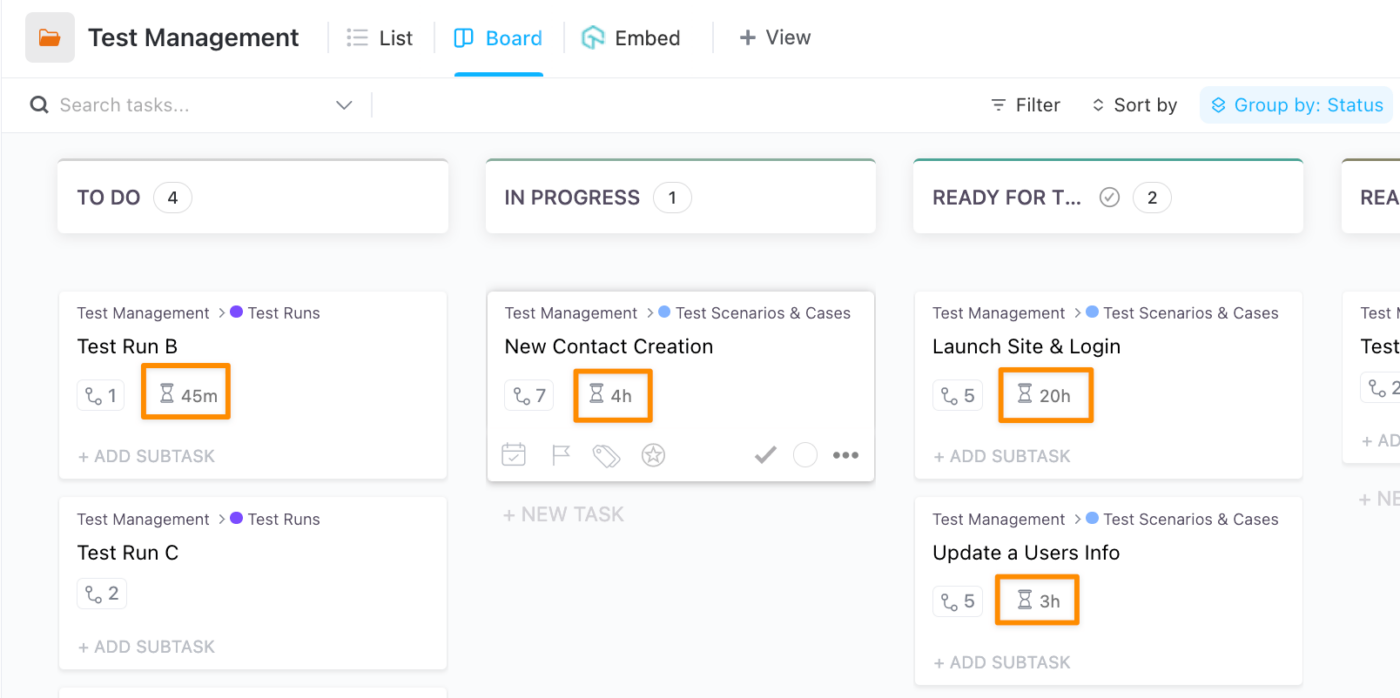
9. Scaled Agile Framework (SAFe) Certification
Subject of interest: Agile transformation at scale
Offered by: Multiple providers with different learning formats
Cost: Contact Scaled Agile for pricing details
The Scaled Agile Framework (SAFe) Certification recognizes professionals experienced in implementing Agile transformations and delivering value in large-scale software and systems development.
SAFe-certified professionals gain a deep understanding of Agile methodologies like Lean, Scrum, Kanban, and DevOps to tackle challenges in project schedules and systems development.
The benefits of SAFe extend to organizations with improved collaboration, faster time-to-market, and increased business agility. SAFe-certified professionals drive this transformation and foster continuous improvement.
10. Certified Project Management Professional (CPMP) Certification
Subject of interest: Sales and marketing project management
Offered by: American Industrial Certification Institute (AiCi)
Cost: Inquire with the AiCi for pricing details
The Certified Project Management Professional (CPMP) program empowers professionals to enhance their marketing competencies. From small business owners to account managers, there’s specialized content to cover different project management career fields.
The program covers diverse marketing aspects, including defining business marketing frameworks, conducting audits and analyses, implementing effective marketing and sales management systems, and developing competitive strategies.
It offers advantages like enhancing resumes, validating sales and marketing knowledge, group training opportunities, and networking with soon-to-be certified professionals.
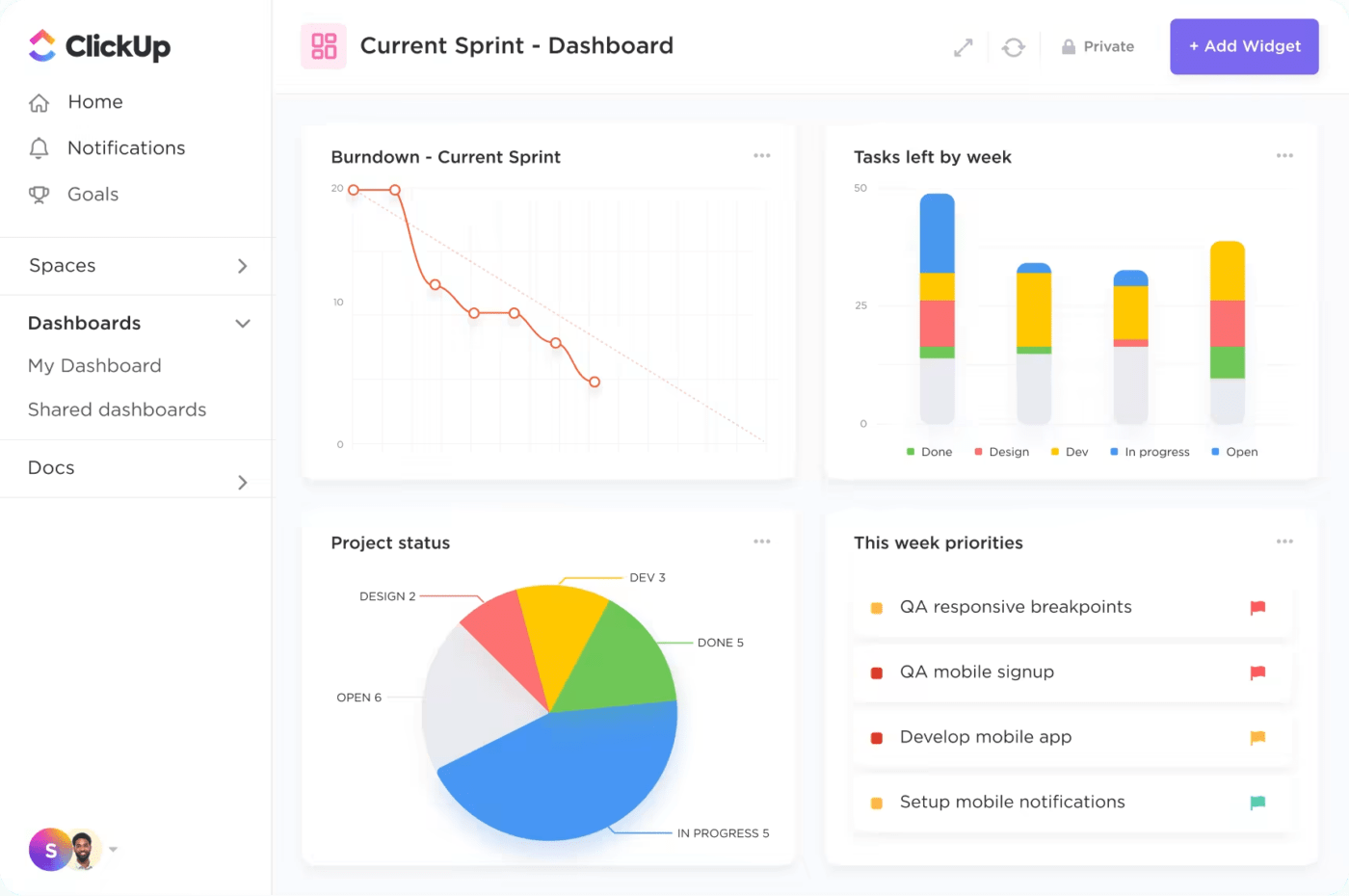
11. Google Project Management Professional Certificate
Subject of interest: Project management, strategic thinking, risk management
Offered by: Google Career Certificates & Coursera
Cost: $49 per month on Coursera after an initial 7-day free trial period
The Google Project Management Professional Certificate provides a comprehensive introduction to project management concepts and practices. It’s designed for individuals who want to kickstart or enhance their careers in this field.
This program covers five courses, from fundamentals like project planning, scheduling, budgeting, and risk management to advanced topics like project leadership and team collaboration. It also offers hands-on experience with tools like Google Sheets, Docs, Slides, and Drive.
As a final project, learners get to apply their skills in a simulated project scenario using the Google Workspace platform. They’ll be evaluated based on their ability to complete tasks within the given time frame and budget. Upon completion, learners receive a certificate recognized by Google and employers globally.
Is a Project Management Certification Worth It?
A project management certification is worth it if it checks all your boxes: project management goals, qualifications, learning preferences, course content, accreditation, professional network, cost, and support level.
As you go through your certification options, it’s worth checking how recently the training program has been updated to align with current industry trends like AI (artificial intelligence) and reference the latest project management tools. ⚙️
If you’re looking to get more hands-on experience to advance your project management skills, try ClickUp! Our highly-rated free project management software is designed for teams of all sizes across industries to work together in one platform.
Your Next Project: Create a Study Schedule for Your Certification Exam in ClickUp
Project management certifications can take several months or years to earn, depending on your current experience and schedule. ClickUp gives multiple ways to break down your extensive syllabus into manageable study sessions. Set Targets and Goals, create flexible timelines, and break down assignments into tasks and subtasks! ??
With ClickUp, you have access to hundreds of productivity tools for tracking your study materials and creating an actionable plan. Here are five tips to streamline your project management training.
Tip #1: Create a project management certification study group
When working on a group project, you have the flexibility to invite any number of classmates to your ClickUp Workspace. In this collaborative environment, you can efficiently assign tasks and seamlessly collaborate, all within a unified platform.
For an added layer of privacy, extend invitations to your fellow study partners as guests to your Workspace. This allows you to maintain control and grant access exclusively to the Folders, Lists, or specific tasks of your choosing. Enjoy the freedom to collaborate securely while keeping your project details organized and confidential. ?
To get started, tap the Invite button in the lower-right corner of your Workspace Sidebar to quickly invite anyone!

Tip #2: Track all study materials
Gathering the right study materials is a great way to kickstart your journey to studying for a project management certification exam. Start by looking up the syllabus of the exam you plan on taking and make sure you have all the necessary books, guides, and practice exams you will need.
If possible, ask other professionals in the field if they know of any resources like practice exams that could be helpful. It’s also a good idea to look up online forums and communities where you can ask questions and get advice from experienced project managers who have already taken the exam. ✔️
Once you’ve gathered all your materials, create a Materials List which outlines when and how you will use each resource. This will make it easier for you to stay focused on your studies and make sure you have enough time to cover all the topics without feeling overwhelmed.
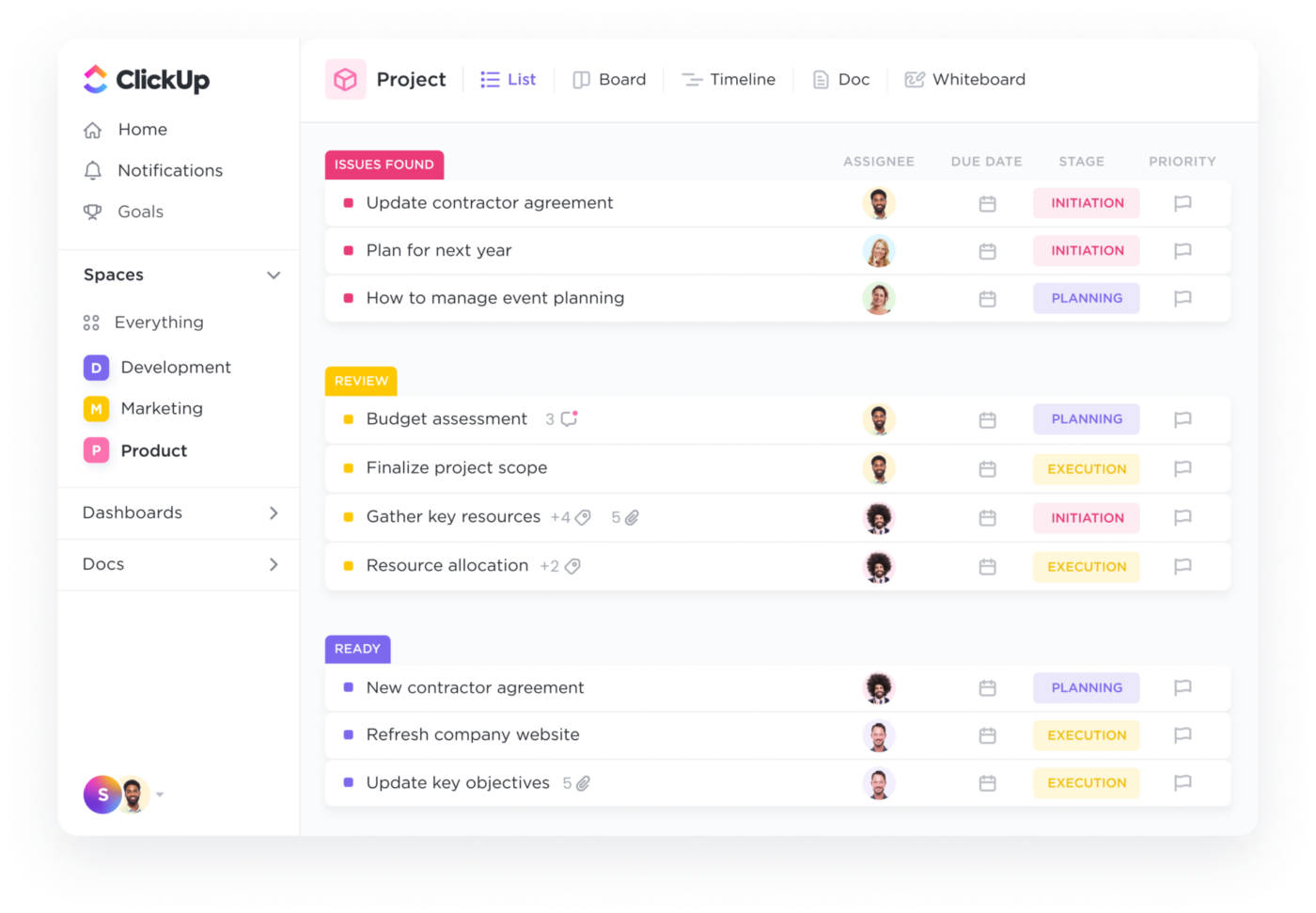
Get free project management templates to save time with pre-built workflows!
Tip #3: Add Milestones to visualize major accomplishments
Everyone’s schedule is different, so it’s important to create a study plan that fits your lifestyle and daily commitments. Knowing when you plan to take the exam is an important step in your preparation process. ?
Set a clear date for when you would like to have taken the exam and then work backward from there to add checkpoints (or Milestones) to hit. This will help give you a solid timeline of when you should be finished with each topic and provide some accountability for yourself as well.
Once the exam date is set, start counting down the weeks leading up to it. Aim to be finished with most of your preparation a few weeks prior to the exam date so that you have enough time to review any last-minute topics or questions you may have!
Tip #4: Collect all your past project management experience in a Doc
In order to take your project management certification exam, you will often need to provide evidence for past experience to meet eligibility requirements. To make sure you are able to easily submit all the necessary information, create a ClickUp Doc that contains all of this information in one easy-to-access location. This way, when it’s time to apply for the exam, you won’t have to scramble trying to find all the necessary details. ?
PRO TIP
Have you heard about ClickUp University? Our free, self-paced online learning platform provides an in-depth exploration of the platform’s core features and grants certificates upon completion. Learn how to collaborate with teams, build automation recipes, create project workflows, and more!
Tip #5: Save time with recurring tasks
Connect your Google, Outlook, or Apple calendars to the Calendar view in ClickUp for planning, scheduling, and even resource management!
There are certain tasks that will come up again and again on a weekly or monthly cadence leading up to the exam. Especially if you’re squeezing in your studies between work and personal commitments, it’s better to create systems and routines so it’s one less task to perform manually.
You have the option to fully customize the frequency and due date, giving you more flexibility to study in a way that works best for you! ⚡️
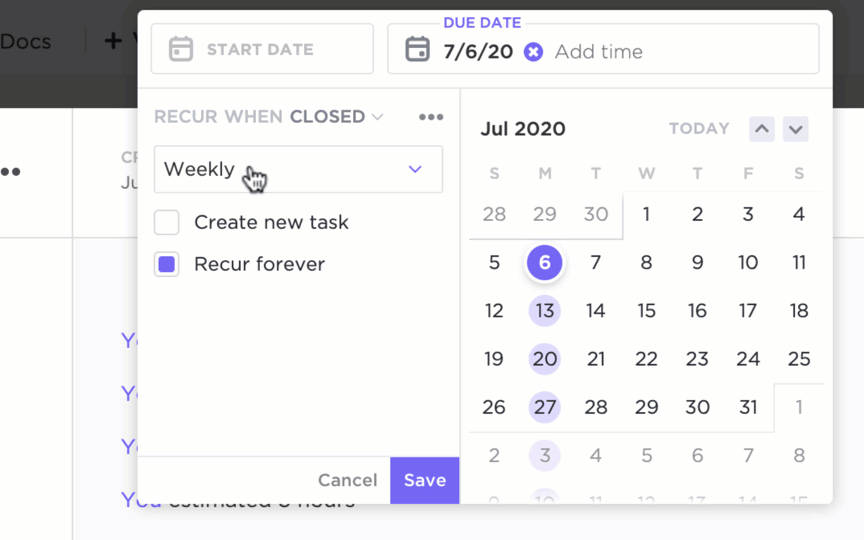
Grow your Career with Project Management Certifications
Most of the project management certifications come with materials to prepare you for exam day. If you’re not quite ready to take the plunge but still want to continue your learning, we have a free newsletter for project managers and teams with expert tips for managing projects and tasks.
In a period of economic uncertainty, making a decision about what to do next with the time you have is a lot of pressure. So, relax your shoulders, take some time for self-reflection, and explore the things that light you up. There’s an amazing community of project management professionals and enthusiasts, and we’re so glad you’re a part of it!



